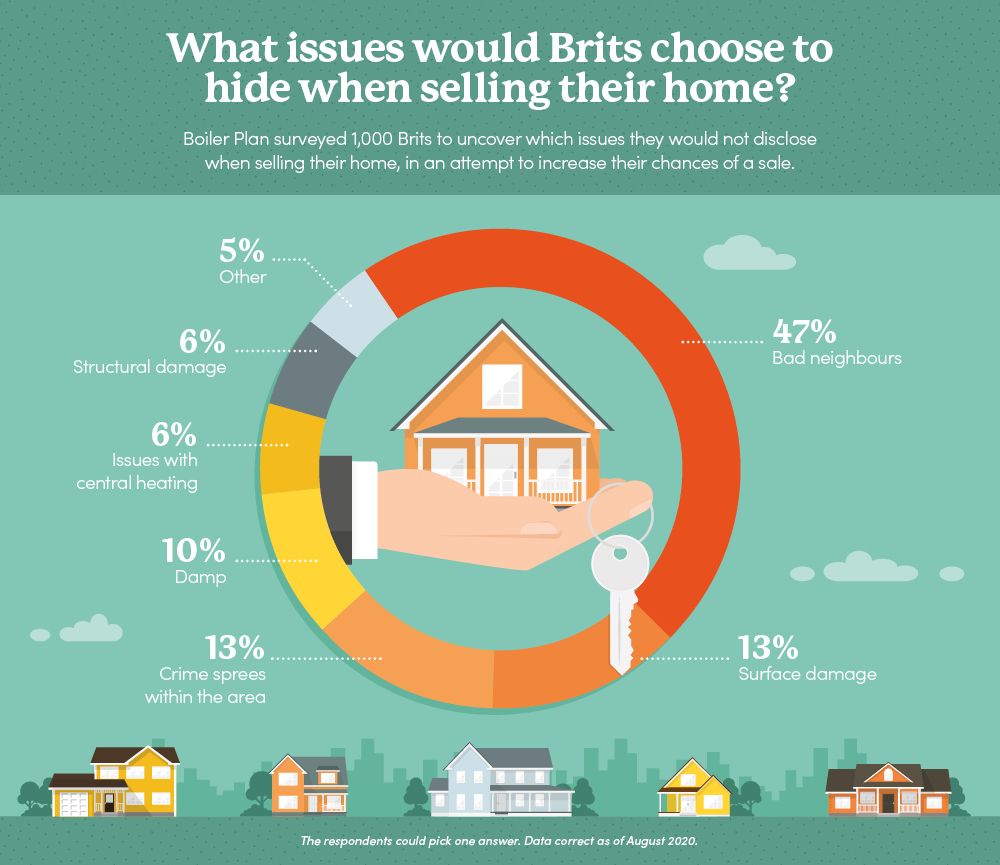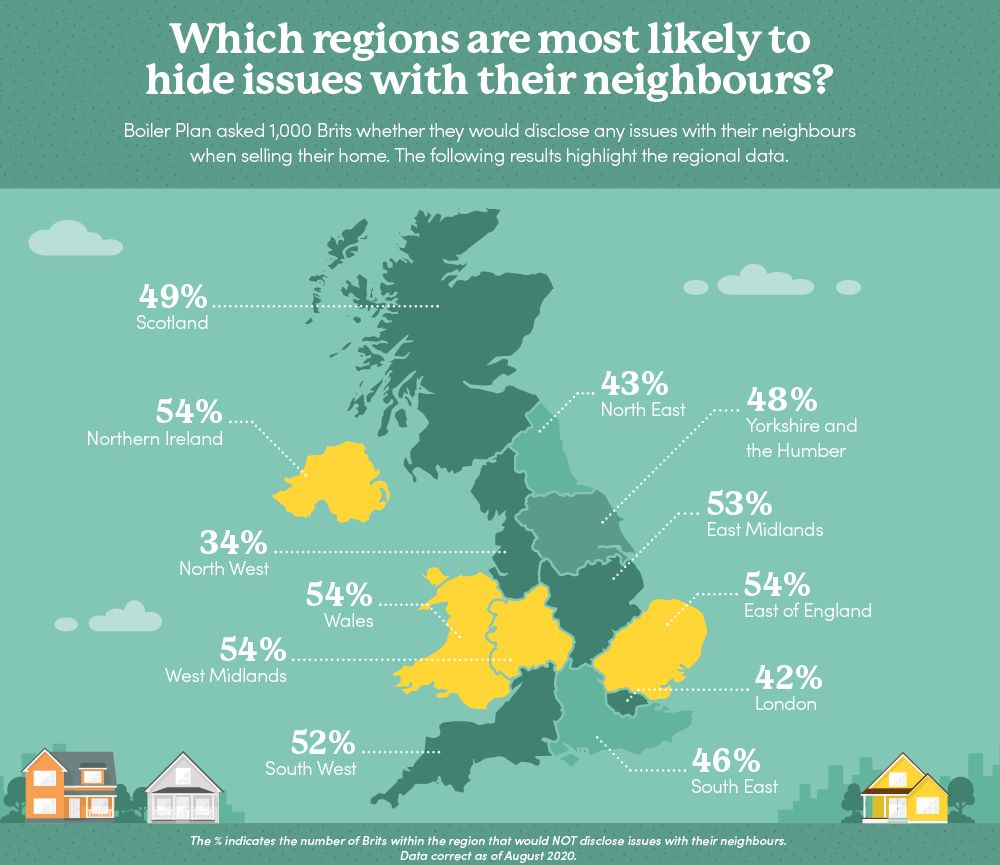With lockdown beginning to ease and more people looking to sell their home, it appears that many Brits are keeping certain problems with their home a secret in the hope of increasing their chances of a sale…
After surveying 1,000 people, Boiler Plan has uncovered the issues homeowners would not disclose, despite them being legal obligations.
In addition, they’ve highlighted that certain regions are more honest about problems with their up-for-sale home than others.
Almost half (47%) of Brits admit that they would not disclose any issues with their neighbours in an effort to increase their chances of a sale on their home. However, it is a legal obligation to disclose issues that have involved official bodies – such as noise complaints to the council.
Over 1 in 8 (13%) of homeowners wouldn’t notify a possible house buyer of increased crime sprees, such as local burglaries, which again, they are legally obliged to.
Similarly, more than 1 in 8 (13%) of Britons stated they wouldn’t make the possible house buyer aware of issues with surface damage to the home, such as a broken fence or bad paintwork, which could cost the future home buyer an average of £600 to fix.
6% of Brits would not disclose structural damage of their home. With the average repair cost for subsidence, which is the most common structural issue, costing between £10,000 – £15,000, it should come as no surprise that many buyers could seek compensation for being misinformed about the structural damage of the home.
Ian Henderson, Managing Director at Boiler Plan, said: “It’s very concerning the number of people who would hide information regarding their property to potential buyers. We advocate being as honest as possible to make sure the buyer has everything they need to make the right decision. Not doing so could potentially cost you so much more, as buyers could look to seek compensation and repair costs.”
Zoe Kenworthy, Director of Sales and Lettings at Wardsmith & Co, highlighted the obligation of sellers to disclose disputes: “The 2008 Consumer Protection Against Unfair Trading Regulations requires a seller to inform their estate agent – and any potential buyer – of material information that may affect an average consumer’s transactional decision, not only to buy a property but even ‘an omission that may affect a potential buyer’s decision to view a property’.
“This will include issues you may have with your boundaries or other disputes with neighbours; notices of any developments nearby; whether the correct approvals have been obtained for building works such as building regulations or the freeholders consent for alterations such as a loft conversion; any significant occurrences at the property, such as a murder or a suicide; and details of any major defects you are aware of.
“White lies or vagueness, can rebound even after you have moved out, as a buyer can still legally seek compensation.”
The poll uncovered the regions of the country where honesty shines, or not.




Whilst I agree that a vendor should disclose neighbour disputes if other bodies are involved it is certainly not down to the vendor to disclose if crime has spiked in the area or the fence needs repairing. This report is nothing more than nonsense!
You must be logged in to like or dislike this comments.
Click to login
Don't have an account? Click here to register
One mans friend is another mans enemy
You must be logged in to like or dislike this comments.
Click to login
Don't have an account? Click here to register
Correct Sunbeam
And the fact is that I might find my neighbour a thoroughly affable cheepy chappy who will go out of his way to help anybody
My buyer might think him a loud mouthed busy body
You must be logged in to like or dislike this comments.
Click to login
Don't have an account? Click here to register